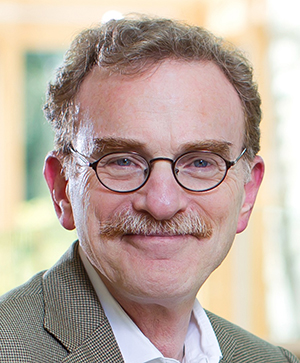Dr Randy Schekman

Date: Thursday 11 August
Location: Lecture Theatre, Medical Teaching Centre
Time: 12.00noon
How Cells Traffic and Export Proteins
Human cells manufacture thousands of different protein molecules that are responsible for all the reactions needed to duplicate a cell and it’s chromosomes. Most of these proteins are designed to work inside of the cell whereas others must escape by an export process called secretion.
Proteins such as insulin, growth factors and antibodies are encapsulated within cells into membrane-enclosed packets called vesicles. Vesicles travel around in the cell to many different destinations but some are delivered to the cell perimeter where, by a process of membrane merging called fusion, the vesicle joins the cell surface and discharges its content to the cell exterior. This fusion event governs diverse cell functions such as hormone secretion and the export of chemical neurotransmitters that allow nerve cells to communicate with each other or that control muscle contraction.
Many of the genes that guide this process were discovered in baker’s yeast, which shares an export mechanism conserved over a billion year of evolution. The fundamental conservation of this process has allowed the biotech industry to exploit yeast as a production platform for the secretion of human proteins such as recombinant insulin. Industrial growth of recombinant yeast accounts for 1/3 of the world supply of human insulin.
Human diseases have been found in the same genes that control secretion in Baker’s yeast. Proteins that guide the process in yeast do much the same thing in human cells and mutations in these genes cause diverse problems in bone growth, blood cell development, lipoprotein manufacture and brain development.
About Dr Randy Schekman
Dr Randy Schekman is a University Professor in the Department of Molecular and Cell Biology, University of California, Berkeley, and an Investigator of the Howard Hughes Medical Institute. He studied the enzymology of DNA replication as a graduate student with Arthur Kornberg at Stanford University. His current interest in cellular membranes developed during a postdoctoral period with S. J. Singer at the University of California, San Diego. At Berkeley, he developed a genetic and biochemical approach to the study of eukaryotic membrane traffic.
Among his awards are the Eli Lilly Award in microbiology and immunology, the Lewis S. Rosenstiel Award in basic biomedical science, the Gairdner International Award, the Amgen Award of the Protein Society, the Albert Lasker Award in Basic Medical Research, the Louisa Gross Horwitz Prize of Columbia University, the Dickson Prize in Medicine from the University of Pittsburgh, the Massry Prize, the E.B Wilson Award of the American Society of Cell Biology, the Kornberg-Berg lifetime achievement award from Stanford Medical School and the Otto Warburg Prize of the German Society for Biochemistry and Molecular Biology. In 2013, he shared the Nobel Prize in Physiology or Medicine with James Rothman and Thomas Südhof.
He has been awarded honorary doctorate degrees from the University of Geneva, the University of Regensburg, The Pontificia Universidad Católica de Chile, the University of Chile and the Chinese University of Hong Kong. He is a member of the National Academy of Sciences, the American Academy of Arts and Sciences, the American Philosophical Society, a Foreign Associate of the Accademia Nazionale dei Lincei and a Foreign Associate of the Royal Society of London. In 1999, he was elected President of the American Society for Cell Biology and was appointed Editor of the Annual Review of Cell and Developmental Biology. From 2002-2012, he served as the Scientific Director of the Jane Coffin Childs Memorial Fund for Biomedical Research. In 2006 he was appointed Editor-in-Chief of the Proceedings of the NAS. In 2011, he stepped down from the PNAS position to become Editor-in-Chief of an Open Access journal, eLife, sponsored by the HHMI, Wellcome Trust and the Max Planck Society.
At UC Berkeley, Schekman has assumed a number of leadership positions in Departmental and campus affairs. In addition to serving a five-year term as Biochemistry Division Head, Schekman served as Chair of the Department of Molecular and Cell Biology. From 2002–2012, he served as Chair of the Chancellor’s Advisory Council on Biology, a virtual College of Biology that represents all 250 life science faculty distributed within the College of Letters and Science, School of Public Health, School of Optometry, School of Engineering, College of Chemistry, and College of Natural Resources. In 2004, Schekman organized a campus-wide stem cell biology center to capitalize on California’s investment in the application of human embryonic stem cells to regenerative medicine.
